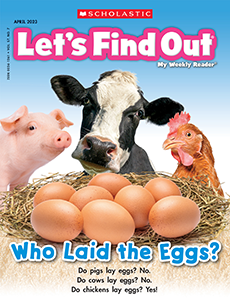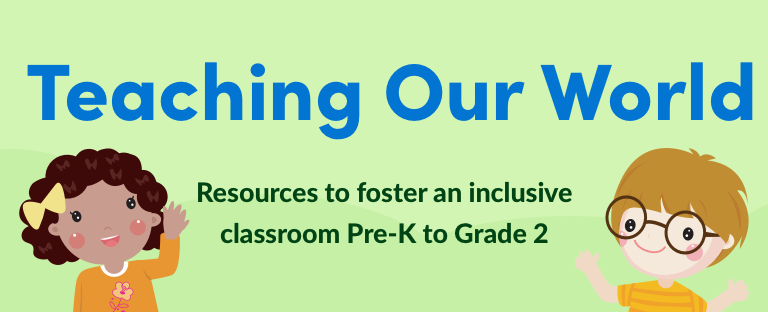Vocabulary Toolkit for Meaningful Conversations
Young children notice differences amongst themselves naturally and with curiosity. They’re also active citizens of our world who pick up information from others and have experiences of their own. This can lead to conversations in the classroom that may seem tough—but they don’t have to be. This reference can help give you the language to handle these teachable moments. The words listed are not meant to be taught out of context or used for a vocabulary lesson. Instead, they are grouped by topics of natural conversation to help facilitate meaningful exchanges with your students.
Talking About Differences
Kids notice each other’s skin color, hair texture, and so on—and that’s OK! When skin color (which is different from race) comes up in classroom conversations, make sure children understand that all skin colors are beautiful and all people should be treated equally. This topic may lead to the use of some of the following words. Here’s some help in using them.
Melanin:
Melanin is what makes people’s skin different colors. If you have darker skin, it is because your body makes more melanin. If you have lighter skin, that means your body makes less.
Race:
The concept of race was created to put people into groups based on their skin color. Race has been used as an excuse to say that some people are worse than others based on their differences—mostly skin color. The truth is that human beings are more than 99 percent genetically identical. A person’s race won’t give you any insight into his or her nationality, intelligence, health, or personality.
Identity:
All the things that make up who you are. Your family, background, and history can all be parts of your identity—but your identity always belongs to you and no one else. You are always yourself.
Diversity:
Diversity refers to all the ways that people can be different from each other: what we look like, how we dress, our traditions, our families. Diversity is something that can be celebrated. We can enjoy and respect one another’s differences because we are all people.
Talking About Fairness
Young children can be aware of what is fair and unfair. However, they may need help understanding the nuances of fairness. (For example, that while we strive to be fair in class, some children may need more help than others—and that’s fair too!) Some of these words might be helpful when kids are thinking about fairness—both in and out of the classroom.
Equality:
When there is equality, all people are treated the same, no matter who they are or what they look like. Everyone gets the same rights and opportunities.
Equity:
Equity is the idea that people get what they need to be successful. This may mean that people are treated differently because they need different things—but it is still fair because everyone gets what they need.
Justice:
Fairness. Social justice is the idea that everyone deserves to have the same rights, no matter what they look like, how much money they have, or any other characteristics.
Action:
Standing up for yourself and for others.
Privilege:
Advantages that people from powerful groups have and that people from less powerful groups do not have, like having access to better schools. Often, people with privilege do not even notice they have it. Privilege is part of systemic racism.
Racism:
A system based on the incorrect belief that people of one race are better than those of another race. The concept of racism is often thought of as a person being prejudiced, but racism is also a complex system of racial hierarchies and inequities.
Anti-racism:
Taking action against the system of racism. Anti-racism can take many forms: Writing letters, marching, and trying to get laws changed are all acts of anti-racism.
Talking About History
Young children don’t always understand why things are the way they are. The words below can help to illustrate how the past informs the present and future. These issues can be difficult to talk about, but they can also be incentivizing. Explain that while some things that happened in the past were wrong, we can all keep creating change for the better!
Ancestors:
The people in your family who came before you.
Discrimination:
People being treated unequally based on race, color, physical ability, sexual orientation, and other categories. Discrimination is against the law.
Enslaved people:
Black people who were owned by white people. They were forced to do hard work without pay, and their enslavers were allowed to hurt or kill them. We use the words enslaved people rather than slaves to emphasize that they were people first; their condition of being enslaved does not define who they were.
Enslavers:
White people who owned Black people. Enslavers forced Black people to do hard work without pay and were allowed to hurt or kill them. We use the word enslavers rather than slave owners to emphasize their actions; the fact that slavery was legal at the time does not excuse them.


